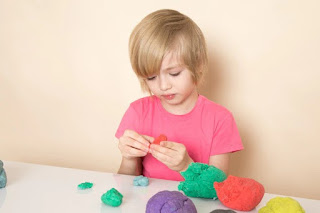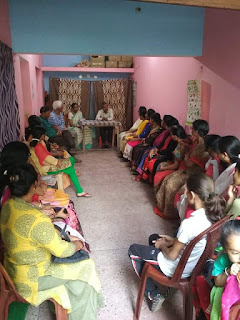What activities are performed to develop fine motor skills?What are benefits to develop fine motor skills?
What activities are performed to develop fine motor skills?
Fine motor skills refer to the coordination and control of small muscles in the hands, fingers, and wrists. These skills are essential for activities such as writing, drawing, buttoning clothes, using utensils, and many more. There are many activities that can help develop fine motor skills, including:
Playing with Play-Doh or clay: This activity involves squeezing, rolling, and molding the material with fingers, which helps to develop strength and dexterity.
Stringing beads: This activity involves threading beads onto a string or wire, which requires hand-eye coordination, finger dexterity, and concentration.
Drawing and coloring: This activity involves using crayons, pencils, or markers to draw or color pictures, which helps to develop hand strength, finger dexterity, and hand-eye coordination.
Playing with puzzles: This activity involves manipulating small pieces to fit together, which helps to develop hand-eye coordination and fine motor skills.
Using scissors: This activity involves cutting paper or other materials, which helps to develop hand strength and hand-eye coordination.
Building with blocks or Legos: This activity involves manipulating small pieces to build structures, which helps to develop hand-eye coordination and fine motor skills.
Playing with tweezers or tongs: This activity involves picking up small objects with tweezers or tongs, which helps to develop finger strength and hand-eye coordination.
Writing or tracing: This activity involves using a pencil or pen to write or trace letters, shapes, or pictures, which helps to develop hand strength and hand-eye coordination.
These activities can be adapted for different ages and skill levels, and can be incorporated into daily routines or structured playtime to help children develop their fine motor skills.
What are benefits to develop fine motor skills?
Fine motor skills refer to the ability to use the small muscles in our hands and fingers to perform tasks that require precision and control. Developing these skills has a number of benefits, including:
Improved hand-eye coordination: Fine motor skills help improve the coordination between the eyes and hands, allowing for more accurate and efficient movements.
Increased dexterity: Developing fine motor skills helps individuals to become more skilled at manipulating small objects and performing tasks that require intricate hand movements.
Better writing and drawing ability: Developing fine motor skills can lead to improved handwriting, as well as the ability to draw with greater detail and accuracy.
Improved self-care: Fine motor skills are essential for many self-care activities, such as brushing teeth, tying shoelaces, and buttoning clothing.
Increased independence: As individuals develop their fine motor skills, they become more independent in performing everyday tasks, which can lead to increased confidence and self-esteem.
Improved cognitive development: Developing fine motor skills involves engaging the brain in complex processes, which can help improve overall cognitive function and problem-solving abilities.
Better academic performance: Research has shown that there is a strong link between fine motor skills development and academic success, particularly in areas such as reading, writing, and math.
Overall, developing fine motor skills is crucial for both physical and cognitive development, and can have a positive impact on a person's overall well-being and quality of life.










Comments
Post a Comment